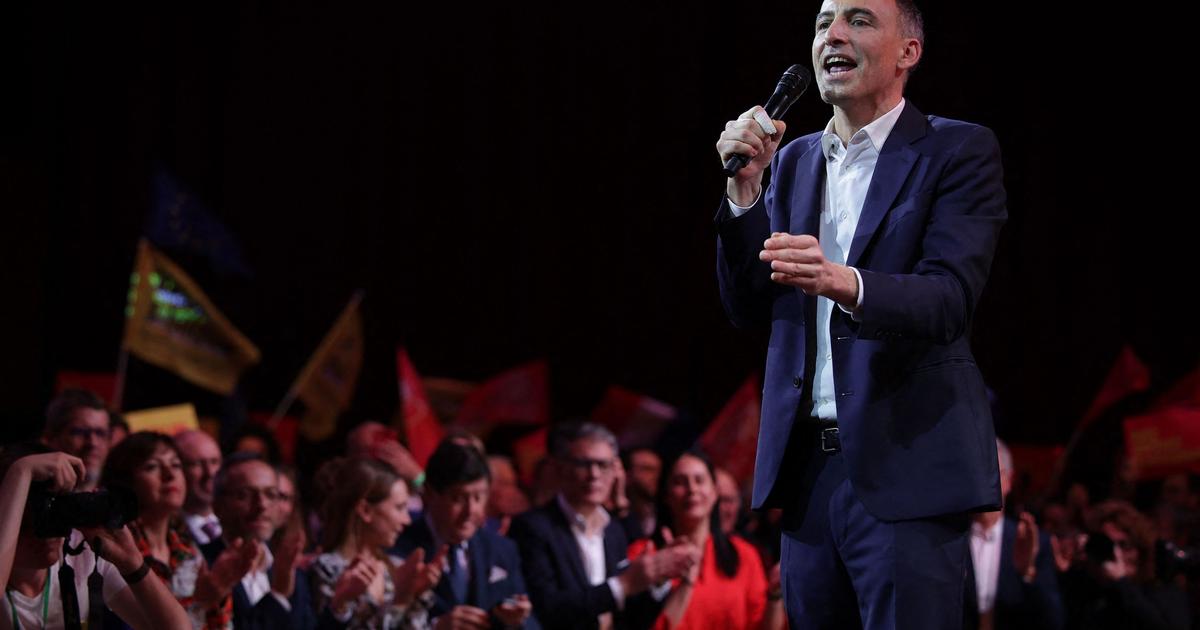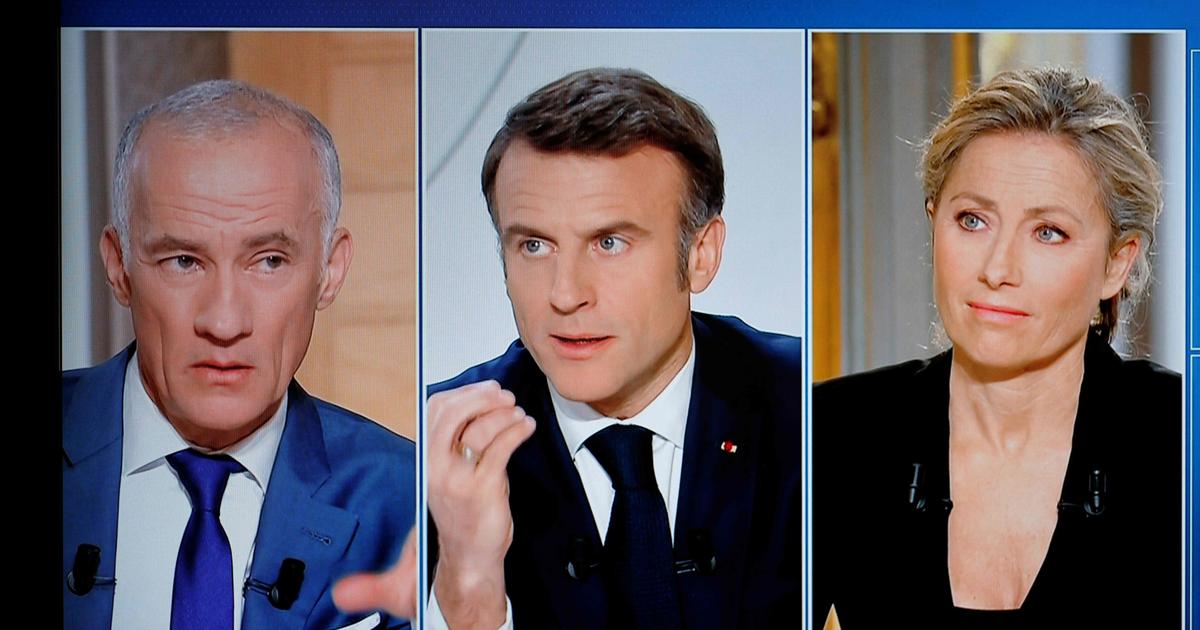Neither Emmanuel Macron nor Jean-Luc Mélenchon are running for the legislative elections this Sunday and the next in France.
But the campaign is a duel between these two men: the centrist and pro-European president and the experienced leader of the anti-capitalist and eurosceptic left.
Macron was re-elected in the presidential elections in April, and in the legislative elections he wants to revalidate the majority in the National Assembly to govern comfortably.
Mélenchon has managed to unite socialists, environmentalists and communists under his tutelage, and aspires to a parliamentary majority that would force the president to appoint him prime minister.
What is decided is Macron's room for maneuver to govern in the next five years.
If he does it with a parliamentary majority in favor, he will be able to apply his program.
An adverse majority – an option that no poll contemplates today – would force him to cohabit with an opposition prime minister and would greatly limit his powers.
"My feeling is that the first round will not be good for Macron," says essayist and consultant Alain Minc, who has mentored Macron and other presidents.
"But this will create a fear reflex for Mélenchon in the second round," he adds.
As in the presidential elections two months ago, France is witnessing a choice between two models.
Then Macron and the head of the extreme right, Marine Le Pen, were opposed.
The novelty is that his rival is no longer Le Pen, blurred in this campaign.
The rival is Mélenchon, the true protagonist of elections in which, according to polls, abstention may exceed 50%.
By running from the start as a candidate for prime minister, he has set the agenda and emboldened the flagging left.
“Yes, we can win”, said this week, while campaigning in an open-air market near the Place de la Bastille, the Mélenchonist candidate Caroline Mecary.
"And even if we don't have an absolute majority, we will be so strong that President Macron will no longer be able to carry out his policy of social destruction and dismantling of public services."
Mecary, a lawyer by profession, is a candidate in the seventh district of Paris, which includes the central districts of the Bastille and the Marais.
She is facing one of the rising values of macronism, the current Minister of Europe, Clément Beaune.
If Beaune loses to Mecary, she will have to leave office: this is what the Elysée Palace has stipulated for the 15 ministers who are also candidates.
The duel is a reflection, on a small scale, of the election in France.
It's Thursday afternoon and Beaune is looking for the vote in the Marais, the old Jewish quarter of Paris.
At the David butcher shop, the owners put out sausages and wine.
They complain that, due to the limitations on the circulation of cars in the center, the clientele cannot park.
They point out that since the destruction in the
yellow vest
demonstrations in 2018, and then the pandemic in 2020, many businesses have closed.
All politics is local.
And yet, there is something else at stake in France this Sunday and the next: two proposals for France and for Europe.
A program of continuity and another of rupture.
Until recently, Mélenchon proposed France's exit from the European Union treaties, and now he promotes "disobedience" to the common rules (socialists and environmentalists prefer to speak of "repeal").
Macron wants a "stronger and more sovereign" Europe.
Beaune, in the Marais, weighs up the consequences of a Mélenchon victory: “It would entail a risk of isolation and weakening of France, of conflict with our partners, and of disintegration in small doses of Europe.
It would be a
Frexit light
”.
That is to say, the light and French version of the British Brexit.
“Often”, the minister specifies, “when something is
light
, it seems easier to drink or eat, but it leads to the same indigestion”.
In the Bastille market, Mecary rejects any accusation of anti-Europeanism.
“When the minister-candidate was five years old, I left the Sorbonne with a third cycle in community and European law.
I was already a convinced European then and I still am”, she assures.
“We don't want to get out of the treaties.
We want them to evolve,” she maintains.
From the local to the continental, through the national.
The fiasco in the organization of the Champions League final in Saint-Denis, on May 28, and the death of a woman by police shooting, last weekend, have marked a campaign of lesser tone.
Macron, in recent days, has tried to mobilize the vote for order and moderation: "Nothing would be more dangerous than adding the French disorder proposed by the extremes to the world disorder."
Mélenchon has issued a warning to Macron, who affirms that he does not feel obliged to appoint him prime minister, even in the case of a Mélenchonist majority: "If we are in the majority (...), we will have to submit or resign."
The expression “submit or renounce” is a quote from the 19th century politician Léon Gambetta.
In his office in the center of Paris, Minc ditches: “I don't think, not even remotely, that Mélenchon can win.
But it is possible that Macron only has a relative majority.”
A relative majority would mean that Ensemble, the name of the Macronist candidacy, would be the first group in the Assembly, but without reaching 289 deputies, the threshold of an absolute majority.
It would not be the first time that a recently re-elected president has been left without an absolute majority: it happened to the socialist François Mitterrand in the 1988 legislative elections.
Without an absolute majority, Macron would be forced to agree with other groups: the moderate right of the Republicans (LR) or socialists and environmentalists.
It would be the end of the macronist roller of the last five years.
"Parliament is going to be a theater," predicts Minc.
“And we are not used to this.”
Last chance for the opposition
The legislative elections will give way to two years without elections in France.
Until the European ones in 2024. The legislative ones will be the last opportunity for the opposition to limit the power of President Macron, who is preparing a plan for this summer to increase purchasing power in the face of inflation, and for the fall his most complicated reform: that of pensions.
The polls predict for the first round of the legislative elections, this June 12, a distribution of the electorate in three blocks.
Macron's Ensemble (Together) candidacy would get 28%, according to the latest poll by the Ipsos institute for the newspaper
Le Monde
, published on Friday.
The New Popular Ecologist and Social Union (NUPES) led by Jean-Luc Mélenchon, 27%.
The National Rally (RN) of Marine Le Pen, 19%.
The traditional right of the Republicans (LR), 11%.
In the second round, on June 19, Ensemble would be the largest group in the National Assembly with a range of between 275 and 315 seats out of 577, a drop compared to the legislature from 2017 to 2022, in which the Macronists had 347 deputies.
NUPES would be the first in the opposition: between 155 and 190 seats.
The third position would be disputed by the LR, which would obtain between 35 and 55 seats, and the RN, between 20 and 45.
Le Pen could win the largest number of seats for her party in history.
But he would be far from the result of the presidential elections in April, when, although he lost to Macron, he won 13 million votes, 41.5%.
Follow all the international information on
and
, or in
our weekly newsletter
.
50% off
Exclusive content for subscribers
read without limits
subscribe
I'm already a subscriber

/cloudfront-eu-central-1.images.arcpublishing.com/prisa/FMO3H3BB3OE5LVN5YU6EGBSZEA.jpg)







